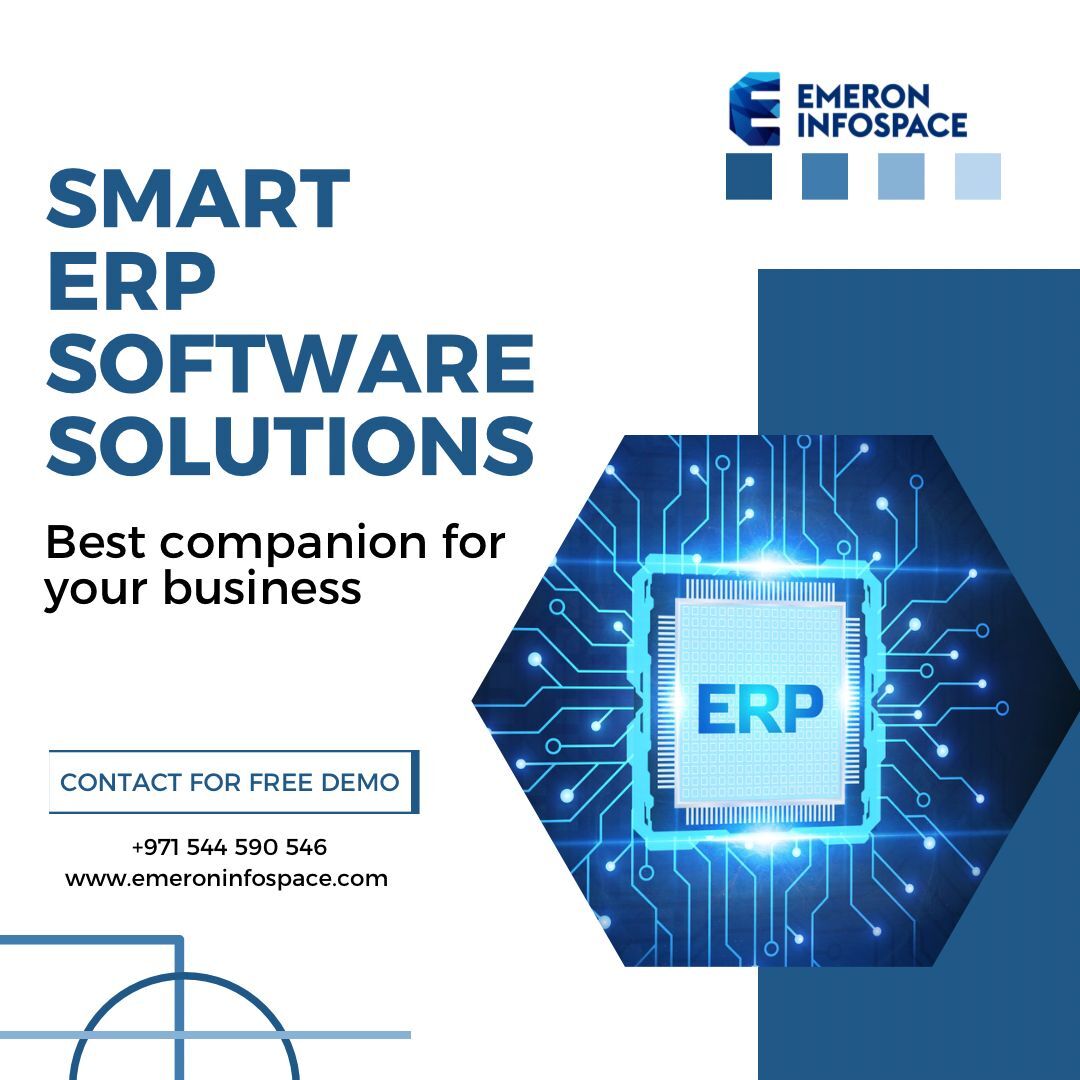ELEVATE YOUR BUSINESS WITH ERP AND DIGITAL TRANSFORMATION
In the fast-paced and ever-evolving business landscape, staying competitive and relevant is crucial for long-term success. One of the key strategies that businesses are increasingly turning to is Enterprise Resource Planning (ERP) systems and digital transformation. In this blog, we will explore how ERP and digital transformation can elevate your business to new heights, providing you with a competitive advantage and driving growth and efficiency.
Understanding ERP and Digital Transformation
Before we delve into the ways ERP and digital transformation can benefit your business, let's clarify what these terms mean.
Enterprise Resource Planning (ERP):
ERP is a comprehensive software solution that integrates and automates various core business functions, such as finance, HR, procurement, inventory management, and customer relationship management. ERP systems provide a centralized platform for data and processes, streamlining operations and enabling efficient decision-making.
Digital Transformation:
Digital transformation is the process of leveraging digital technologies to reshape and optimize business processes, culture, and customer experiences. It involves the adoption of technologies such as cloud computing, automation, data analytics, and mobile solutions to enhance productivity and competitiveness.

The Benefits of ERP
Implementing an ERP system in your business can have a profound impact on various aspects of your operations. Let's explore some of the key benefits:
1. Streamlined Business Processes
ERP systems bring order and efficiency to your operations by providing a unified platform for data and processes. This eliminates the need for siloed systems and manual data entry, reducing errors and ensuring data consistency. By automating routine tasks, employees can focus on more strategic activities, ultimately improving productivity.
2. Enhanced Data Accuracy
With ERP, your data is stored in a single repository, eliminating data duplication and inconsistencies. This not only improves data accuracy but also ensures that decision-makers have access to real-time, reliable information for better decision-making.
3. Improved Financial Management
ERP software can streamline financial processes such as accounting, budgeting, and reporting. This leads to greater financial transparency, better cost control, and more effective management of financial resources.
4. Better Inventory Management
ERP systems enable real-time tracking of inventory levels, helping businesses avoid overstocking or understocking issues. This can result in cost savings and better customer satisfaction.
5. Enhanced Customer Relationship Management (CRM)
Many ERP solutions include CRM modules, allowing businesses to manage customer data, sales, and support more efficiently. This leads to improved customer satisfaction and stronger customer relationships.
6. Data-Driven Decision-Making
The data collected and processed by ERP systems can be used for in-depth analysis. This data-driven approach to decision-making allows you to identify trends, make more informed choices, and seize new business opportunities.
The Power of Digital Transformation
Now that we've explored the benefits of ERP, let's discuss how digital transformation can elevate your business further:
1. Cloud-Based Solutions
Moving your business operations to the cloud offers a multitude of advantages. It allows for scalability, flexibility, and remote accessibility, which are especially valuable in today's dynamic business environment. Cloud-based ERP solutions, for instance, provide real-time data access from anywhere, enabling better decision-making and collaboration.
2. Automation Technologies
Automation technologies, such as robotic process automation (RPA), can streamline repetitive tasks, reducing the risk of human error and freeing up your workforce to focus on more valuable, strategic work. Automating routine processes also enhances operational efficiency and productivity.
3. Data Analytics
Digital transformation enables businesses to harness the power of data analytics. By collecting and analyzing data from various sources, you can gain valuable insights into your business performance, customer behavior, and market trends. This information can guide your strategy, product development, and marketing efforts.
4. Enhanced Customer Experiences
Digital transformation allows you to create personalized, seamless customer experiences. Mobile apps, e-commerce platforms, and AI-driven chatbots can enhance customer interactions and build brand loyalty.
5. Cost Savings
By adopting digital technologies, you can reduce operational costs through process optimization, automation, and resource allocation. For example, cloud-based solutions eliminate the need for substantial infrastructure investments and maintenance.
6. Competitive Advantage
In today's business landscape, those who embrace digital transformation gain a significant competitive advantage. Businesses that leverage digital technologies tend to be more agile and better prepared to adapt to changing market conditions.
Implementing ERP and Digital Transformation
To successfully implement ERP and digital transformation in your business, consider the following steps:
1. Assess Your Current State
Begin by understanding your current business processes and identifying pain points. Where are manual processes causing bottlenecks, and where is data siloed?
2. Set Clear Objectives
Define specific objectives for your ERP and digital transformation initiatives. What do you aim to achieve? Improved efficiency, cost savings, data-driven decision-making, or all of the above?
3. Choose the Right Solutions
Select ERP software that aligns with your business needs and objectives. Consider cloud-based solutions for flexibility and scalability.
4. Invest in Training
Properly train your employees to use the ERP system and digital tools effectively. This will maximize the benefits and minimize resistance to change.
5. Monitor and Evaluate
Continuously monitor the performance of your ERP system and digital transformation efforts. Collect data and feedback to make improvements and adjustments as needed.
Conclusion
In a world where businesses are constantly evolving, staying ahead of the curve is essential. ERP and digital transformation are not just technological innovations; they are strategic tools that can elevate your business to new heights. By streamlining operations, improving data accuracy, and enabling data-driven decision-making, ERP can enhance the core functions of your business. Digital transformation, with its focus on cloud solutions, automation, data analytics, and customer experience, can take your business to the next level, providing cost savings and a competitive edge. As you embark on your ERP and digital transformation journey, remember that this is not a one-time project but an ongoing process of optimization and adaptation. By investing in these technologies and staying agile, your business will be better positioned to thrive in today's dynamic and competitive business landscape.